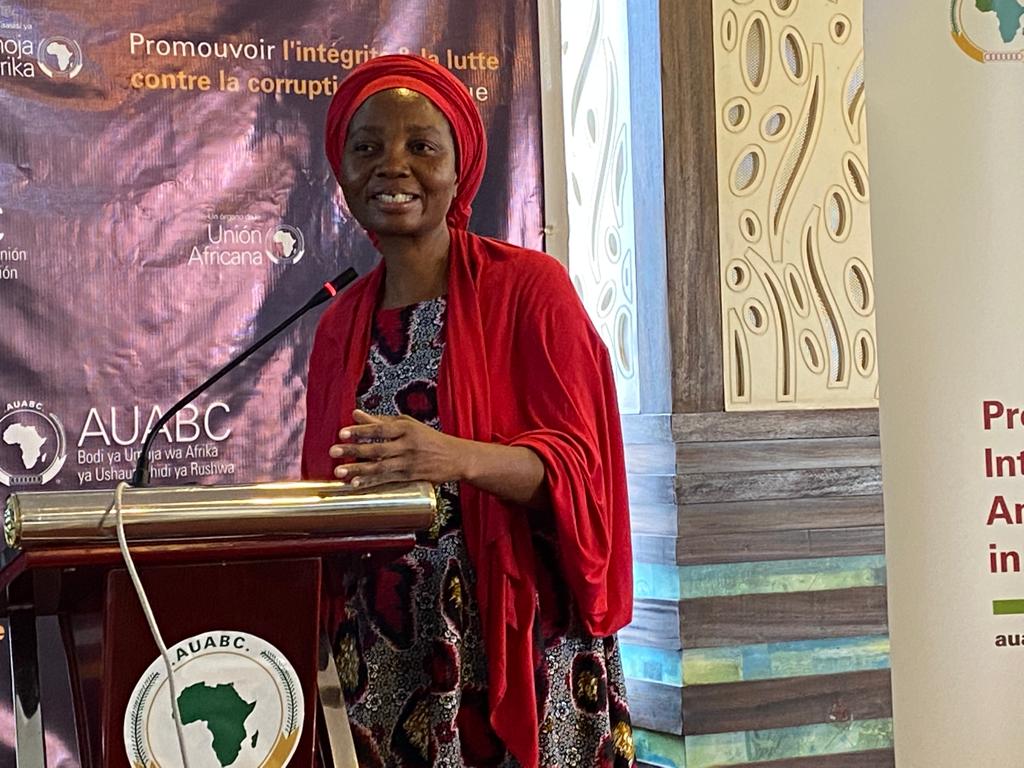|
Getting your Trinity Audio player ready…
|
By Baboloki Semele
Nairobi, Kenya: The Executive Secretary of the African Union Advisory Board Against Corruption (AUABC), Charity Nchimunya has urged the media to occupy the front lines in the fight against corruption.
She made the call on 27 September 2022 in Nairobi, Kenya at a media engagement workshop on supporting the implementation of the African Union Convention on Preventing and Combatting Corruption (AUCPCC).
In making the call, she emphasized that with the wealth of resources that Africa is endowed with, the continent could be far, but the achievement has been curtailed by corrupt practices.
Nchimunya pointed out that the AUCPCC has been ratified by 48 Member States. However, only 15 State parties have reported to them, which is worrisome.
Organized by the African Union Advisory Board Against Corruption (AUABC), with the help of the GIZ office to the African Union, the three-day workshop commenced with a presentation by Dr. Scelo Zibagwe on a broad overview of Africa’s Agenda 2063.
He brought awareness of its provisions regarding governance and the rule of law, taking into consideration the seven aspirations, fifteen flagship projects, and thirty-nine priority areas as well as the decision-making process of the AU.
The media delegates and experts drawn from all the five regions of Africa were further schooled on the AUCPCC, which resonates with aspiration three of Agenda 2063, speaking to an Africa of good governance, democracy, respect for human rights, justice, and the rule of law.
The aspiration emphasizes that Africa shall have a universal culture of good governance, democratic values, gender equality, and respect for human rights, justice, and the rule of law.
During the unpacking of AUCPCC, senior policy officer for economic and statistical matters at the board’s secretariat, Martha Munthali emphasized Article 12 of the conversation which urges State parties to be fully engaged in the fight against corruption and related offenses and the popularization of the convention with the full participation of the media and the civil society.
The article further mandates State parties to create a conducive environment to enable civil society and the media to hold governments to the highest levels of transparency and accountability in the management of public affairs, in the process ensuring and providing for the participation of civil society in the monitoring process and consulting civil society in the implementation of AUCPCC.
It also tasks State parties to ensure media is given access to information in cases of corruption and related offences on the condition that the dissemination of such information does not adversely affect the investigation process and the right to a fair trial.
The objective of the three-day workshop is to build capacity and awareness of the AUCPCC as well as the board and its mandate. The workshop will further serve as a platform for experience, and knowledge sharing on the lessons and challenges that journalists face and discuss practical solutions for effective reporting on corruption to strengthen the fight against corruption.
